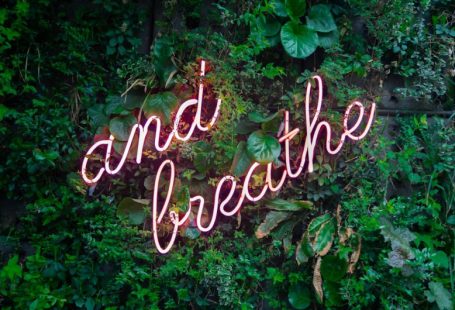In today’s fast-paced world, anxiety has become a common issue for many people. The constant pressure to keep up with work, social life, and personal responsibilities can take a toll on mental health. If you find yourself struggling with anxiety, incorporating mindfulness techniques into your daily routine can help alleviate stress and promote a sense of calm and well-being.
Understanding Anxiety
Anxiety is a natural response to stress, but when it becomes overwhelming and persistent, it can impact your daily life and overall well-being. Symptoms of anxiety can manifest in various ways, including racing thoughts, restlessness, irritability, and difficulty concentrating. It’s essential to address these symptoms early on to prevent them from escalating and affecting your mental health.
Mindfulness and Anxiety Relief
Mindfulness is a practice that involves focusing on the present moment without judgment. By cultivating mindfulness, you can train your mind to let go of worries about the past and future, which are common triggers for anxiety. Mindfulness techniques can help you develop a greater awareness of your thoughts and emotions, allowing you to respond to challenging situations with clarity and calmness.
Practice Deep Breathing
Deep breathing is a simple yet effective mindfulness technique that can help reduce anxiety and promote relaxation. When you feel anxious, take a moment to focus on your breath. Inhale deeply through your nose, allowing your abdomen to rise, then exhale slowly through your mouth, feeling your body release tension with each breath. Deep breathing can help calm your nervous system and bring your awareness back to the present moment.
Engage in Mindful Meditation
Meditation is a powerful tool for cultivating mindfulness and reducing anxiety. Find a quiet space where you can sit comfortably and focus on your breath or a specific mantra. As thoughts arise, acknowledge them without judgment and gently guide your attention back to your breath. Regular meditation practice can help rewire your brain to respond to stressors more calmly and mindfully.
Practice Grounding Techniques
Grounding techniques are helpful for bringing your awareness back to the present moment when you’re feeling overwhelmed by anxiety. One technique involves using your senses to anchor yourself in the here and now. Notice five things you can see, four things you can touch, three things you can hear, two things you can smell, and one thing you can taste. This exercise can help shift your focus away from anxious thoughts and into the present reality.
Cultivate Gratitude
Practicing gratitude is a powerful way to shift your perspective and reduce anxiety. Take a few moments each day to reflect on things you’re grateful for, whether it’s a supportive friend, a beautiful sunset, or a moment of peace. Cultivating gratitude can help you focus on the positive aspects of your life and foster a sense of contentment and well-being.
Engage in Mindful Movement
Mindful movement practices, such as yoga or tai chi, can help reduce anxiety by combining physical activity with mindfulness. These practices encourage you to focus on your breath and body movements, promoting a sense of relaxation and inner peace. Even a short yoga sequence or tai chi routine can help release tension and calm your mind.
Seek Professional Support
While mindfulness techniques can be beneficial for anxiety relief, it’s essential to seek professional support if you’re struggling with persistent anxiety symptoms. A mental health professional can provide guidance, support, and personalized strategies to help you manage your anxiety effectively.
Embrace Mindfulness for Anxiety Relief
Incorporating mindfulness techniques into your daily routine can help you navigate anxiety with greater ease and resilience. By cultivating mindfulness through practices like deep breathing, meditation, grounding techniques, gratitude, and mindful movement, you can reduce stress, improve your mental well-being, and enhance your overall quality of life. Remember that consistency is key, so make an effort to incorporate these techniques regularly to experience their full benefits. Start your mindfulness journey today and take proactive steps towards anxiety relief and inner peace.





